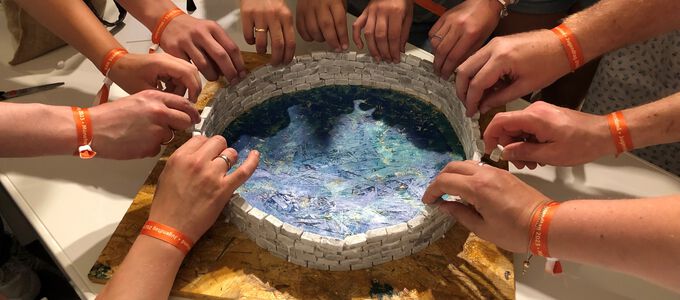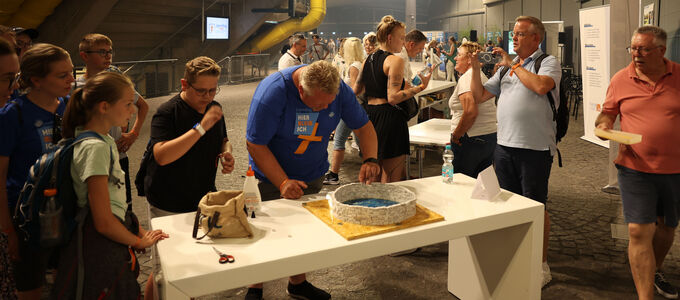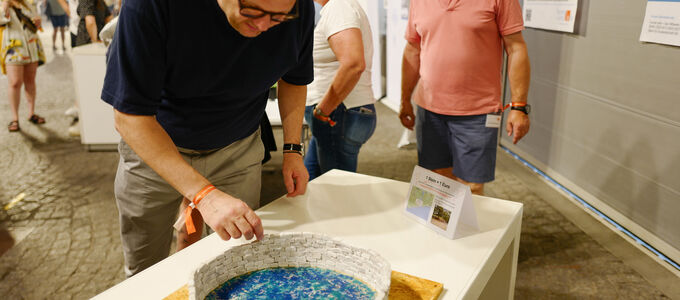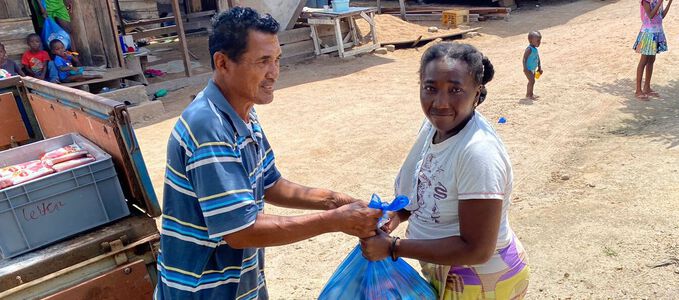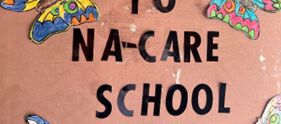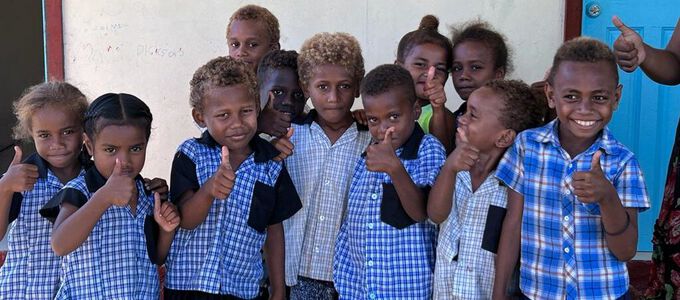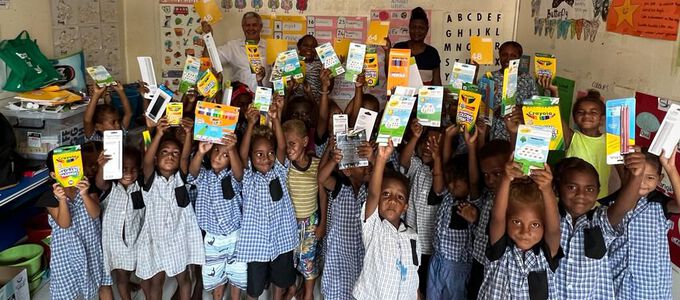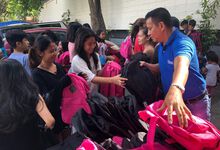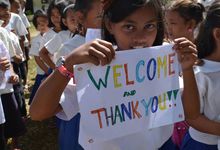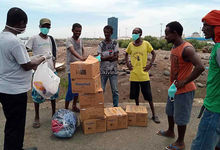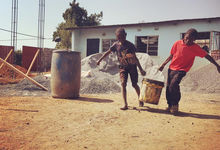Helpers at work (2): unusual means lead to the desired result
Helping hands are important in these times. In 2023, the thirteen New Apostolic aid agencies were faced with numerous challenges. Part two of our mini-series we will look at how they tackled these.
Day of the Youth in Southern Germany: the Olympic Centre in Munich, Germany, is packed with New Apostolic young people. Many stop at a small stand of the Church’s aid agency. The visitors build a miniature well out of many small stones. And as it grows, so does the amount of funding for the well’s big brother: “Each stone was matched by the aid agency, human aktiv, with one euro,” says Stephanie Rastedter from project support, “allowing us to finance a well in Kpomkpo in Ghana after the Day of the Youth.”
The aid agency human aktiv emerged in 2018 from the Missionswerk, which was originally founded in 1993 under a different name, Neuapostolisches Hilfswerk. The charity uses the donations of the members of the New Apostolic Church Southern Germany mainly in countries served by Southern Germany.
Helpers are welcome
Similar fundraising campaigns are organised by Stichting Corantijn in the New Apostolic congregations in the Netherlands. The charity emerged from the New Apostolic Church Netherlands in 1997, but is independent of the Church. Marion van Berkum makes a point of emphasising this when it comes to donors: “These are individual, mostly one-time donors from inside and outside the New Apostolic Church.” And the volunteers are not all Church members either: “It is not important to us where you come from. If you want to help, you are welcome.”
Most of the aid goes to Suriname, a small country on the northern coast of South America. Especially in the interior, the level of education is rather low and malnutrition too high. People hardly have access to electricity, clean drinking water, sanitation, infrastructure, and health care. Stichting Corantijn wants to help. That is why the foundation ships aid containers to Suriname. Most of the containers contain medical devices and supplies, but also everyday necessities, which are then sold for very little money in the villages. The proceeds are used by Stichting Corantijn to finance other social projects in Suriname. Now the aid agency has to deal with rising transport costs.
Covid and no end in sight
Many people are still reeling from the economic effects that Covid had. Elderly or sick people and low income families often struggle to survive on a daily basis. “Many children are sent to school without food,” Marion van Berkum says about the situation in Suriname. The Corantijn Foundation therefore collects money in the Netherlands and sends it to a District Elder in Suriname. He uses it to put together food parcels that he distributes in the villages and poorer places in the capital Paramaribo. “We keep a list so that families only benefit once. It is a food parcel with basics containing enough for fourteen days. We don’t want to take away all the worries from people, but we support them so that it is a little less difficult for them,” Marion van Berkum explains.
When emergency aid becomes long-term aid
When the New Apostolic Church Western Pacific founded the relief organisation NACare in 2016 it did so with the intention to provide help quickly. Many Church members wanted the Church to provide direct aid to people affected by major natural disasters. They wanted to be sure that the donations would actually reach those affected. Through a network of ministers and other members, donations from members are quickly distributed to local communities affected by disasters. The charity has also organised several Move-a-Thons. Longer-term projects are now also possible.
You can find further information about the aid agencies of the New Apostolic Church around the world, including contact information and opportunities to support them, on their websites:
- human aktiv (Southern Germany)
- Kumea (East Africa)
- Masakhe Foundation (Southern Africa)
- NAC Foreign Extension (Canada)
- NAC SEA Relief Fund (South East Asia)
- NACare (Australia)
- NACRO (Zambia, Malawi, Zimbabwe)
- NAK-Diakonia (Switzerland)
- NAK-Humanitas (Switzerland)
- NAK-karitativ (Germany)
- re Charitable Ministry (USA)
- Ser Prójimo (Argentina)
- Stichting Corantijn (Netherlands)
What exactly a Move-a-Thon is and how the New Apostolic Church Western Pacific uses it to finance longer-term projects is the subject of the next part of this mini-series, along with other longer-term initiatives.
Article info
Author:
Date:
Keywords:
Katrin Löwen
23.10.2023
Aid agencies,
Social commitment,
International


